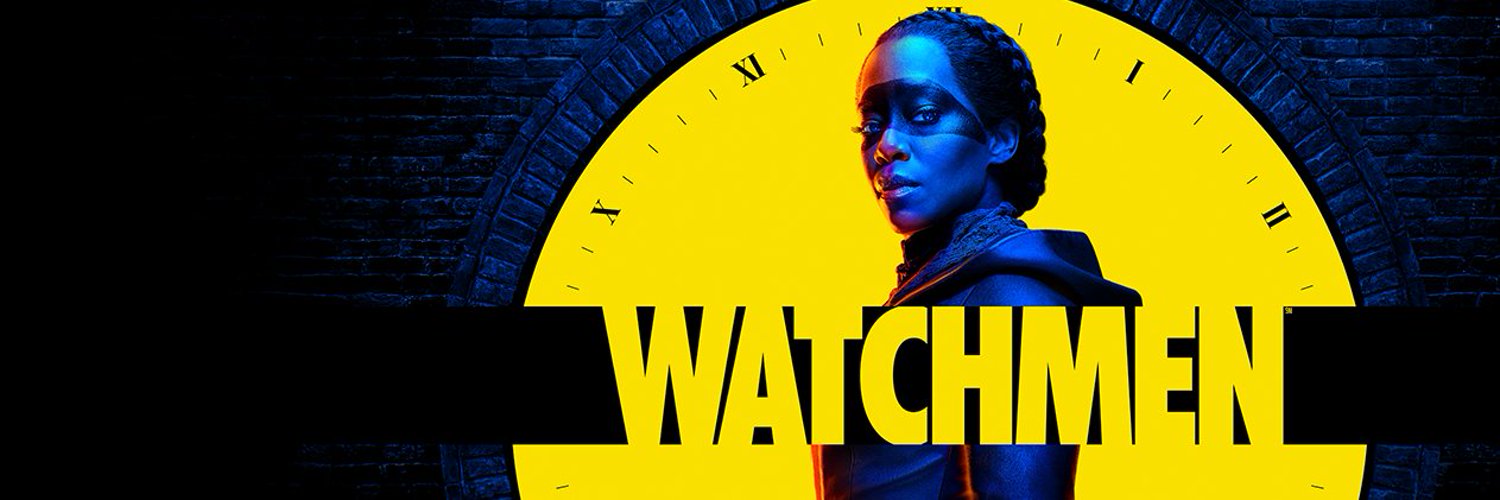
Wondering if you should give Watchmen a watch? Film Editor Matt Taylor will tell you why you should
Is there such a thing as a perfect season of television? The first season of Westworld, perhaps. Maybe one of the early seasons of Game of Thrones, or the final season of Breaking Bad. We could probably throw in either season of Fleabag, or Twin Peaks: The Return, too. Regardless, there’s now one more we can add to that list: Damon Lindelof’s Watchmen. Serving as a sequel to the now-iconic graphic novel series of the same name by Alan Moore and Dave Gibbons, Lindelof’s show (which has just finished airing on Sky Atlantic in the UK) is an absolute wonder, striking a perfect balance between homaging and respecting the original comic and simultaneously feeling bold, fresh, and original.
To give a detailed synopsis would be to give away unnecessary spoilers; just know that the nine-episode limited series is a direct sequel to Moore and Gibbons’ original comic, taking place 34 years after Adrian Veidt dropped a giant alien squid on New York in an attempt to avert nuclear war, and picking up in 2019 after Rorschach’s mask has been adopted as the symbol of a white supremacist terrorist group, and police officers are forced to wear masks to keep their identities secret after an attack by that same terrorist group, known as the Seventh Kavalry.
Jeremy Irons has a wonderfully baffling subplot as Adrian Veidt
We follow several protagonists throughout the show (and indeed revisit some of the original Watchmen), but the most prominent of these is Detective Angela Abar, played beautifully by Oscar-winner Regina King. Angela’s history remains veiled for much of the season, but as we learn more about her we realise just how big a part she has to play in the events towards the end of the series. Her police colleague Wade Tillman is played by a superb Tim Blake Nelson; Wade gets much more to do as the narrative progresses, and an entire episode devoted to him is one of the standouts of the series. Jean Smart appears as Laurie Blake (the former Silk Spectre), now an FBI agent who is sent to Tulsa, Oklahoma (the setting of the show) to try and weed out the Seventh Kavalry, who pose a greater threat with each passing day. Jeremy Irons has a wonderfully baffling subplot as Adrian Veidt, who appears at first to be living in exile after being presumed dead by the rest of the world, while Louis Gossett Jr and Hong Chau pop up as very important playing pieces whose purpose seems at first unclear.
What is most impressive about the series is its sheer confidence: Lindelof trusts his audience, and it shows
That’s something that could be said about Lindelof’s show as a whole; so many things seem important yet unclear. He and his team of writers strike this balance perfectly; the hook episode of the season isn’t really until episode five (the show’s halfway point), but there is enough intrigue in the episodes prior to this to keep us watching anyway, and the payoffs to it all by the final few episodes are unlike anything we’ve seen on television for years. The narrative moves in entirely unexpected places, and a reveal at the end of episode seven is utterly earth-shattering. But perhaps what is most impressive about the series is its sheer confidence: Lindelof trusts his audience, and it shows. When one rather prominent character is revealed to actually be the leader of the Seventh Kavalry, Steph Green (who directs the episode) plays it beautifully. When most shows feature a huge twist or reveal such as this, they would dwell on it, either with silence or a loud backing score, giving the audience time to revel in it – not so here. Green’s direction and Lindelof’s writing work together perfectly; the twist is played, and then the narrative moves on. We probably didn’t see it coming, but the team aren’t that bothered. What immediately follows the revelation is a very simple conversation between two characters, which is a superbly gutsy way of playing a reveal such as this. Again, everything has its payoffs.
It looks and feels better than most big-screen movies I’ve seen this year
The season’s final few episodes are, frankly, transcendental. Though the first half of the show is undoubtedly exceptional, everything about these last couple of episodes is perfect, from the writing, direction and performances all the way down to how Watchmen is shot, scored and put together. I cannot remember the last time I saw such a technically gorgeous TV show, to the extent that it looks and feels better than most big-screen movies I’ve seen this year. Everything comes together fantastically in time for the finale, with a particularly emotional plot point that’s likely to coax out several tears, and a final shot that’ll leave you gasping for breath.
It may be the ultimate slow-burner, but I promise you that Watchmen is worth the wait. By finding that perfect sweet spot between respecting the source material and forging gorgeous new ground, Lindelof and co have created what is the best television show we have seen in years. Game of Thrones, eat your heart out: this is the series we’ll remember of the 2010s. Now, if you’ll excuse me, I’m off to watch it all again.

Comments